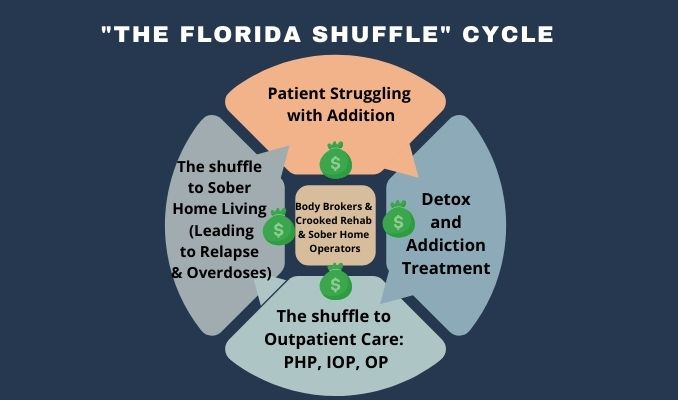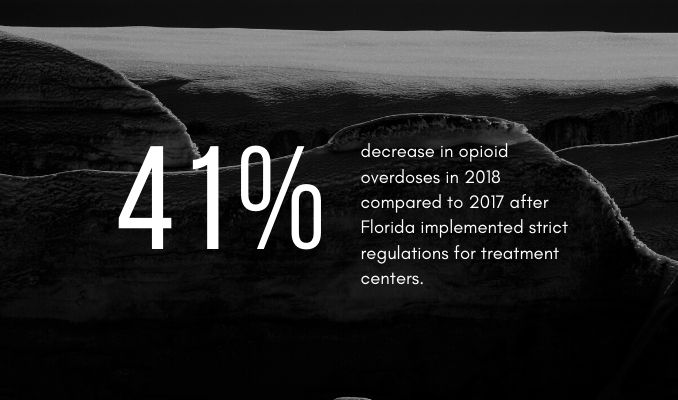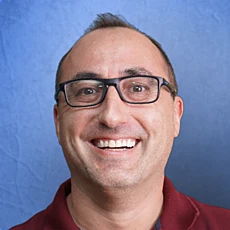“Body Brokers” 2021 Netflix Movie Release Takes a Closer Look at the Dark Side of Rehabs
Table of Contents
- “Body Brokers” 2021 Netflix Movie Release Takes a Closer Look at the Dark Side of Rehabs
- An Outline of Body Brokers, the Movie
- The Reality of Drugs: Michael Kenneth Williams Overdose Death
- How Do Crooked Rehab Centers Get Away with Patient Brokering?
- The Florida Shuffle and Its Damaging Effects
- Putting the Florida Model over the Florida Shuffle
- What Did State Leaders Do to Halt The Florida Shuffle? Enforced Regulations (Finally)
- There is Good News – Reputable Treatment Centers Do Exist
- Reach Out for Reliable Rehab Options Across the USA
- Medically Reviewed By
Picture this: You’re struggling with drug addiction and looking for a reputable rehab center to start your road to substance abuse recovery and long-term sobriety.
However, before you know it, you’re getting high with your roommates at that exact rehab that was supposed to help you get clean.
In fact, you’re even getting paid to persuade other users in the area to attend that rehab. Why? Money and greed.
Body Brokers, a film produced by Jeremy Rosen that is expected to release this year, exposes the predatory side of addiction centers and what to be aware of before entering a treatment facility. The plot of Body Brokers shows the dirty side of rehab, where patients are exploited for money – otherwise known as “patient brokering.”
An Outline of Body Brokers, the Movie
*SPOILER ALERT* (Kind Of…):
Get ready to see a range of talented actors and actresses, such as Jack Kilmer, Alice Englert, Michael Kenneth Williams, Melissa Leo, Jessica Rothe, and Frank Grillo. The film takes us to treatment centers in Los Angeles, where those struggling with substance abuse travel (from as far away as rural Ohio in this case) to find reliable, effective professional and clinical help to reach sobriety.
Plot Twist: Some of these recovering addicts and alcoholics turn into the perfect fit for a predatory body broker. What is a body broker? A body broker is an individual that has good insurance and is seeking help from a rehab center. Once these individuals are recruited by the owners and operators of these shady sober living homes and rehabs, they begin to recruit more and more body brokers.
Why?
It’s all part of healthcare fraud that went unnoticed for quite some time (up until recently), where everyone that is involved gets a kickback — especially the owners and operators of these disreputable and shameful centers that are meant to help users get clean and move toward the road of recovery.
Now, we can’t give it all away since we want you to see the movie for yourself, but we can dig deeper into the dishonest side of addiction treatment, in addition to helping with how to find a reputable center that will actually create a customized treatment plan to help you get clean and stay clean.
The Reality of Drugs: Michael Kenneth Williams Overdose Death
Many of us are aware of the passing of Michael Kenneth Williams this past September 6th, but few realized quite how profound his struggles with substance abuse have been. Even the newly released details of the actor’s death can provide insight into how difficult drug addiction can be to escape, no matter your wealth or success.
In the details given by the NY Times article on the criminal investigation into his death, it appears Mr. Williams spontaneously decided to purchase what turned out to be a lethal combination of fentanyl, carfentanil, and heroin from a group of street dealers in Williamstown. Whether this purchase and his overdose reflect a possible relapse, only those closest to Michael K. Williams could answer with any amount of certainty.
What does seem inescapable, however, is that substance abuse created a vicious cycle in the life of this incredibly talented actor, and ultimately led to his death. The fact that his body of work will live on for many years probably holds little consolation for his family and friends, who are left picking up the pieces of another life ended too early due to drug addiction.
How Do Crooked Rehab Centers Get Away with Patient Brokering?
When “body brokers” and owners of corrupt rehabs and sober homes partner together, patient brokering happens. If you struggle with addiction and have good insurance, you’re the ideal victim of this fraud scheme.
Body Brokers is a film intended to inform those struggling with addiction and their loved ones that there are shady addiction rehab centers out there. And, unfortunately, these dishonest drug rehabs have no problem preying on addicts and alcoholics with the right insurance to acquire as much money as possible.
The sad part is body brokers and selfish operators of untrustworthy rehabs and sober homes simply have no feelings or care for the patients who are trying to get clean and live a sober lifestyle, they care only about money and the profits that can be had through unethical practices.
The Florida Shuffle and Its Damaging Effects
Because of the laws that were passed, such as the Affordable Care Act and the federal Mental Health Parity Act, those struggling with addiction were able to get the help they needed to get sober from their substance abuse.
However, these laws that were intended to help those with addiction issues also caused detrimental effects on patients – especially with relapses and overdoses.
One such example commonly used to describe the devious side of treatment facilities was known as “The Florida Shuffle.”
The Florida Shuffle came about when the opioid epidemic started, when thousands of individuals struggling with opioid abuse came to Florida to get help with their addiction.
Once rehab centers and sober homes learned of this epidemic, they realized a gold mine was right in front of them. How? They targeted desperate addicts with good insurance who were seeking treatment.
Putting the Florida Model over the Florida Shuffle
The Florida Shuffle is basically when a treatment center offers a free plane ticket to a certain location for those struggling with addiction to enter a private-pay addiction rehab center for their so-called “treatment,” where they can be shuffled around multiple facilities for different levels of care – all of which will receive kickbacks. Across the country, from Utah to Maine, clients arrived expecting safe, high-quality addiction treatment services.
Instead, clients would relapse by getting high and shuffling to a new facility. In many cases, patients would relapse or overdose in the facility they entered to start their recovery process. This was because those running these treatment hubs would discourage sobriety by:
- Handing out drugs to cause relapses and put patients back into treatment to gain more money through their insurance
- Charging insurance companies for lab and urine tests that were either unnecessary or not even administered at all
- Using some patients as body brokers to bring in new addicts and keep the cycle going – basically participating in human trafficking
- Employ other wrongful practices that put the patients in harm’s way, causing many users to leave in ambulances or body bags due to overdoses
Sobriety didn’t make money for greedy rehab owners and operators, whereas patients that continuously relapsed and re-entered treatment did.
What Did State Leaders Do to Halt The Florida Shuffle? Enforced Regulations (Finally)
In 2017, Florida was the first state to force regulations for addiction treatment centers to put an end to The Florida Shuffle.
This included aggressive task forces and compliance standards to get rid of the facilities that were partaking in illegal practices within the addiction treatment industry.
As a result of the regulations set in Florida, many addiction treatment facilities shut down due to the use of wrong practices to obtain more clients and money.
Patient brokering is one of these unethical and fraudulent practices that was frequently used in Florida sober homes and certain treatment centers.
Florida saw a dramatic 41% decrease in opioid overdoses in 2018 compared to 2017 after putting forth strict regulations for sober homes and substance abuse centers.
Because of Florida’s successful results, California is now beginning to join Florida in placing regulations and task forces on addiction treatment centers to ensure patients can safely and properly get the help they need without being used for insurance money.
There is Good News – Reputable Treatment Centers Do Exist
There are many trustworthy and credible drug and alcohol treatment centers out there that genuinely want to help those battling addiction get clean and live a sober life.
It is all about being aware of what to ask before entering a rehab center.
If you or your loved one is looking for an addiction rehab center that puts your needs first and makes a personalized treatment plan for your recovery, here are a few points to be aware of:
- Do your research.
Research, research, research. This cannot be stressed enough.
With almost every piece of information available within seconds on the internet, it is crucial to research any addiction centers you may be contemplating attending. Look at reviews on Google, Facebook, and other review platforms.
Look-up any staff members you can find – whether it is an owner, operator, director, and so on. Ask around – maybe someone you know has been to treatment before and has advice on which facility is reputable and a fit for you.
- Know what questions to ask the Admissions staff.
There are dozens of articles and publications online and offline that can help you create a list of critical questions to ask the Admission staff of a treatment center for drugs and alcohol addiction.
Some questions that should absolutely be top-of-mind include:
-
- What types of treatment does your facility offer?
-
- What types of substance use disorders does your rehab center specialize in treating?
-
- What types of therapy programs are offered (i.e., Behavioral, Medicinal, Activities, Support Groups, One-on-One Counseling, and so forth)?
-
- How long has the treatment center been open?
- Review and research the treatment center’s accreditations.
What accreditations does your treatment center have? This is one of the most significant questions to ask the Admissions staff for any rehab facility you are considering.
Some of the accreditations to specifically ask about include:
-
- Department of Children and Families (DCF): This accreditation means the rehab facility in question has completed a series of evaluations and a comprehensive review through a third party. The third-party analyzes all aspects of the center including the staff, programs, safety processes, regulations for the care of patients, operations within the facility, policies within the facility, paperwork audits, onsite audits, and many other factors. This is a required license to have if running a treatment center for addiction.
-
- Joint Commission on Accreditation of Healthcare Organizations (JCAHO): While not required, having a JCAHO accreditation is one of the largest accrediting organizations for drug treatment centers. This accreditation means that a complete review was performed at the treatment facility, including the evaluation of the center’s structures, programs, processes, patient results at the end of treatment, standards of quality, clinical staff, admissions staff, and additional staff members.
-
- National Committee for Quality Assurance (NCQA): This accreditation was designed to better healthcare quality. It ensures that private facilities have an acceptable and validated performance regarding their treatment plans, operations, and processes.
-
- Commission on Accreditation of Rehabilitation Facilities (CARF): CARF is an organization that performs evaluations and reviews for rehab centers on addiction treatment and dual diagnosis treatment. This is also not required, but it does show that the facility is credible when it comes to treating both addiction and mental health illnesses.
-
- National Association for Behavioral Healthcare (NABH): This accreditation holds a rehab facility accountable for the quality of patient care, effective prevention programs, credible treatment programs, and responsive delivery of treatment.
-
- LegitScript: Google hired this third-party company in September of 2018 as the only certification service for addiction treatment centers in order for rehabs to ethically advertise on Google, Bing, social media platforms, and any other form of paid advertising.
Reach Out for Reliable Rehab Options Across the USA
While Body Brokers is likely to portray an ugly side to addiction treatment, it is essential to note that there are honest, dependable, and ethical rehabs and sober homes all over the U.S.; and, these centers go above and beyond to help their patients reach sobriety through customized treatment plans.
It’s all about awareness and remaining informed on all aspects of the addiction treatment industry.
If you have any questions on patient brokering, questions to ask Admissions before entering rehab, or other items to consider if you struggle with addiction, reach out to one of our Find Addiction Rehabs expert representatives today and ask away!
Eric R. hails from Maine and does extensive work in the field of behavioral health as both a professional writer and passionate advocate for those suffering. From his own personal encounters with mental illness, he speaks to those seeking healthy relief from depression and anxiety and embraces wellness both personally and professionally. After losing friends and family to the darkness of suicide, Eric aims to educate and inform about the nature of treatment and render it accessible for all those seeking a way out of darkness and despair.




